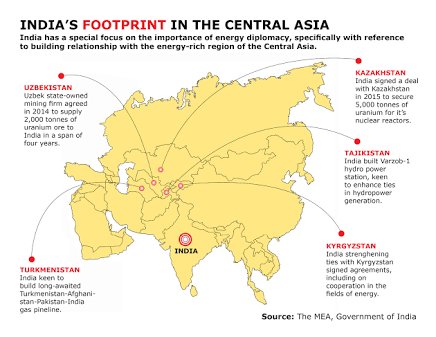Various useful foreign affairs updates
India, UK, Australia to launch new group IRIS
- Japan's new PM: The prospect of Kishida’s Liberal Democratic Party winning an outright majority in Japan’s House of Representatives looked shaky as the party lost an upper house by-election in Shizuoka prefecture to an opposition-backed candidate. Kishida had made a point of campaigning in the area, visiting it twice before the setback. National opinion polls tell a similar story. A recent survey by broadcaster FNN found that the LDP is on course to lose its outright majority. The LDP’s near-permanent status as Japan’s ruling party appears to have eaten into voter turnout in recent elections, with the past three elections failing to entice more than 60 percent of voters to cast a ballot. Opposition parties will hope to reverse that trend and engineer an upset, with the Constitutional Democratic Party (CDP) and Japanese Communist Party (JCP) agreeing to a kind of non-aggression pact in single-seat constituencies to avoid splitting the vote against the LDP.
- Sudan’s coup: Seven people were killed and 140 injured so far in Sudan as soldiers appeared to fire on those protesting the military coup mounted in the early hours. Responding to the takeover, the United States has frozen $700 million in direct aid to Sudan and has not ruled out sanctions, with State Department spokesperson Ned Price saying the United States was “willing to resort to any and all appropriate measures to hold accountable those who may be attempting to derail the will, the aspirations of the Sudanese people.” The U.N. Security Council is expected to discuss the issue.
- The ASEAN summits: The Association of Southeast Asian Nations (ASEAN) held its biannual summit in Brunei with meetings between its 11 members as well as regional powers on the two-day schedule. The summit was notable for the absence of Myanmar junta leader Min Aung Hlaing who was excluded from proceedings following a decision made by ASEAN foreign ministers earlier this month. U.S. President Joe Biden led the U.S. delegation in the virtual ASEAN-U.S. summit, the first time a U.S. president has done so since Donald Trump in 2017. Chinese Premier Li Keqiang led China’s delegation for the ASEAN-China summit.
- China-Taliban talks: Chinese Foreign Minister Wang Yi met with Taliban representatives in Doha, the highest-level meeting between China and Afghanistan’s new rulers since the group took control of Kabul in August. Wang last met the Taliban when he hosted Mullah Abdul Ghani Baradar, now Afghan deputy prime minister, in China’s northern city of Tianjin in July '21.
- India’s Central Asian outreach: The dramatic developments in Afghanistan have thrown up renewed challenges for India’s regional and bilateral ties with Central Asia. The region is part of India’s “extended neighborhood.” Over the past decade, the region has become the site of great power tussles over energy resources. The world witnessed India’s rise as an economic power and a regional power. China’s deep inroads in the Central Asian republics in terms of investment is also a concern. After the breakup of the Soviet Union and the formation of the independent republics in Central Asia, India reset its ties with the strategically critical region. India signed the Strategic Partnership Agreements (SPA) with Kazakhstan, Tajikistan and Uzbekistan to stimulate defence cooperation and deepen trade relations, and formulated its Connect Central Asia Policy which is a broad-based approach including political, security, economic, and cultural connections. India signed MoUs with Iran in 2015 to develop the Chabahar port in the Sistan-Baluchistan province to diversify the export markets and control China’s ambitions. The government has also proposed to include the strategic Chabahar Port in the International North-South Transport Corridor (INSTC). The Central Asian countries have admitted New Delhi into the Ashgabat Agreement allowing India to facilitate trade and commercial interactions with Central Asia and Eurasia. India extended a credit line of $200 million for the support of development projects in Kyrgyzstan, and signed an memorandum of understanding (MoU) on High-Impact Community Development Projects (HICDP). India supported efforts for a peaceful solution of the Nagorno-Karabakh conflict between Azerbaijan and Armenia. India now needs a clear recalibration of its regional engagement with Central Asian countries.
- EXAM QUESTIONS: (1) Explain the problem in Sudan's democracy. (2) Why is Central Asian region strategically important for India? (3) Is the Myanmar junta finally an outcaste for the ASEAN? Explain.
#foreignaffairs #Myanmar #Taliban #Sudan #US #China #CentralAsia
* Content sourced from free internet sources (publications, PIB site, international sites, etc.). Take your own subscriptions. Copyrights acknowledged.





















COMMENTS